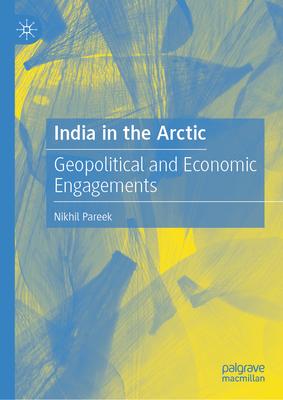This book explores the pitfalls and bottlenecks of viewing the Arctic from a mere scientific prism and offers recommendations to approach it from a strategic construct and climate change by strengthening bilateral and multilateral cooperation with the Arctic states and the Arctic intergovernmental organisations. It discusses the inception and development of the soft law cooperative governance structure prevailing in the Arctic and explores engagement by the various stakeholders including the eight sovereign states, thirteen sovereign states as observers, various intergovernmental and inter-parliamentarian outfits, NGOs, and others desirous of an active participation in the Arctic. It brings out the geo-economic and geostrategic levers which have propelled the Arctic as a key region for emerging great power rivalry. It posits the efforts of Arctic states and the Observers holistically to draw parallels with the Indian efforts requiring greater focus and effort. It critically examines the Arctic Policy released by the government on 17 Mar 2022 that missed the opportunity to elucidate India's geo-economic, geostrategic, economic, and geopolitical aspirations in the hugely vital region and debates if India's economic and geopolitical position as well as historical links to the Arctic region fits the requirements of an external observer state and must continue to build on its strengths for mutual betterment.

India in the Arctic: Geopolitical and Economic Engagements
This book explores the pitfalls and bottlenecks of viewing the Arctic from a mere scientific prism and offers recommendations to approach it from a strategic construct and climate change by strengthening bilateral and multilateral cooperation with the Arctic states and the Arctic intergovernmental organisations. It discusses the inception and development of the soft law cooperative governance structure prevailing in the Arctic and explores engagement by the various stakeholders including the eight sovereign states, thirteen sovereign states as observers, various intergovernmental and inter-parliamentarian outfits, NGOs, and others desirous of an active participation in the Arctic. It brings out the geo-economic and geostrategic levers which have propelled the Arctic as a key region for emerging great power rivalry. It posits the efforts of Arctic states and the Observers holistically to draw parallels with the Indian efforts requiring greater focus and effort. It critically examines the Arctic Policy released by the government on 17 Mar 2022 that missed the opportunity to elucidate India's geo-economic, geostrategic, economic, and geopolitical aspirations in the hugely vital region and debates if India's economic and geopolitical position as well as historical links to the Arctic region fits the requirements of an external observer state and must continue to build on its strengths for mutual betterment.